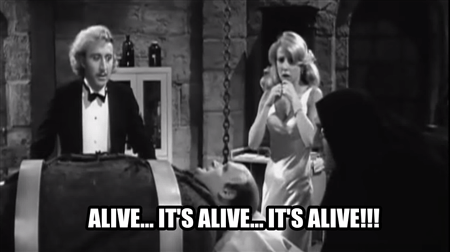You're Such a Character!
Characters are, in my opinion, some of the most important aspects of a novel, or any story, for that matter. Sure, plot twists, the environment, and the building action (climax!) impact the way people remember a story. But, what is it that people actually remember about a story? How the characters REACTED to the plot twists. How the characters ADAPTED to the environment. How the characters DEVELOPED in moments of action, climax, and resolution.
There's a lot of advice out there about how to develop a strong character. Choose a name. Decide what the character looks like. Develop a personality. These are all great. And helpful. But, they aren't everything.

Here's my how to guide to creating strong characters.
1. Treat your characters like people. Characters should feel real. They should engage in day-to-day interactions with other characters in your story. They should react in ways that we've actually seen people react. And feel emotions that others (and ourselves) have felt. Essentially, develop characters you know. Form a relationship with them. A friendship. Even the characters you don't like. Pull from your own emotions and the emotions you've seen demonstrated in others.
2. Let your characters surprise you in their reactions to the plot sequence. How many times have you known someone really well and they just did something that surprised you? All the time. Right? Yeah, so should your characters. Don't be afraid to write something into your character if it feels right. Chances are, your readers will be surprised as well. And, surprise leads to wanting to know more. Plus, again, allowing your characters to surprise you will make them more realistic.
3. But, pay attention to consistency. I know. I just provided the advice to let your characters surprise you; however, people, in large part, are creatures of habit. And so should your characters. Their overall personality should be consistent. If they're crazy and loud most of the time, make them crazy and loud. If they're irrational and make illogical choices. Continue to do that. Once again, this will make your characters feel more real. More alive. And what's more memorable than a character that feels like their alive?

4. Let bad things happen to your main characters. Like really bad things. Like despair. And injury. And, dare I say it? Yes, I do. Death. Since we've been treating our characters like people and developing relationships with them, this one can be incredibly difficult. And, there is a fine line between killing off your characters in a realistic way and killing off characters just for the shock value. They both have their places, but, if you develop characters that feel alive then their loss, their pain, their anger, anguish, and even their deaths will make your book have a much stronger impact on your readers. Plus. Bad things happen. It's life. And what more is there to writing books than to tell our stories about life?

5. Finally, have your characters drive your plot, not the other way around. Now, let me be frank here. Having an action driven book can be fun to write and easy to read. Developing a good plot sequence is incredibly important and the things that happen in a story need to be just as realistic as the characters are. However, if you want your characters to be memorable and to have an impact on your readers, they need to be ones driving the action. Let the action sequences mean something to your characters and shape them. Let the plot twists and climaxes fit into the development of your characters. If you can do this, then not only will have an action packed book but you'll also have characters that people become attached to.
What are your thoughts?























